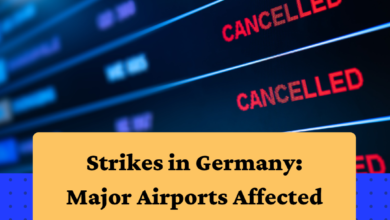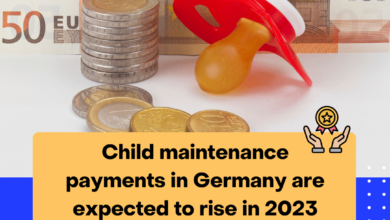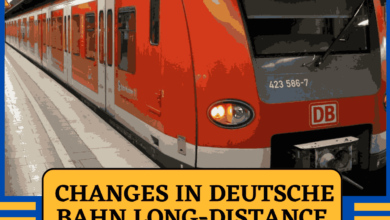Unlocking Germany’s €49 Travel Ticket: Funding Uncertainty and More
Unlocking Germany’s €49 Travel Ticket: Funding Uncertainty and More
Living in Germany offers a unique perspective on the country’s news and events that might have slipped under your radar. In this week’s edition, we delve into the ongoing debate surrounding the €49 travel ticket, explore language simplification efforts, and uncover the exciting ritual that signals the start of Oktoberfest. Stay tuned for the latest insights!
The Future of Germany’s €49 Ticket
Germany’s €49 travel ticket has been a game-changer, offering affordable monthly travel options. However, its future is now uncertain due to funding concerns. Transport Minister Volker Wissing touts its success, with 11 million tickets sold in the first three months and increased usage of local and regional transport. But financing remains murky.
The federal and state governments initially agreed to share the €3 billion annual ticket costs for 2023-2025, with a partial commitment for additional expenses in 2023. However, this assurance wanes in 2024 and 2025. German states are uneasy about potentially bearing the brunt of inflation-induced costs.
In response, states penned an open letter to the government, urging them to uphold their commitment to the Deutschlandticket project. The situation remains tense, with speculation about potential price hikes or even the ticket’s discontinuation. The issue is far from resolved.
Tweaking the German Language
A proposal has emerged to simplify the German language by dropping articles, such as “der,” “die,” and “das.” Instead, every noun would adopt a single neutral gender, “das.” This linguistic streamlining aims to facilitate language learning.
For example, “das frau,” “das mann,” “das baum,” and “das hund” would replace the current article-dependent forms. While it may sound peculiar initially, proponents argue that subsequent generations would adapt seamlessly. This proposal is generating buzz and debates about its feasibility and impact on the German language.
Berlin and Kyiv’s New Partnership
The iconic Brandenburger Tor (Brandenburg Gate) witnessed a historic moment when Vitali Klitschko, the mayor of Kyiv, met with Kai Wegner, the mayor of Berlin. This handshake marked the beginning of a new partnership between the two cities, with Kyiv becoming Berlin’s 18th twin city.
This twinning is a symbol of solidarity with Ukraine, reflecting Berlin’s support for its Eastern European counterpart. The connection between these cities promises cultural exchange, cooperation, and shared experiences.
The Oktoberfest Tradition
Oktoberfest, the world-famous beer festival, is here, and beer enthusiasts are flocking to Munich. But do you know about the tradition that kickstarts this grand event? The mayor of Munich plays a pivotal role by tapping the first beer keg at precisely 12 pm on the festival’s opening day, exclaiming, “O’zapft is!” which translates to “It’s tapped!” in Bavarian dialect.
The tapping ritual, dating back to 1950, has historical significance. Former Munich mayor Thomas Wimmer initiated it during the Munich Electric Fair and later at Oktoberfest. In the 1980s, the tradition evolved to involve the Bavarian state premier, who receives the first beer from the keg.
Living in Germany offers a unique glimpse into the country’s lesser-known stories and traditions. From the uncertain fate of the €49 travel ticket to language simplification proposals, Berlin’s new partnership with Kyiv, and the spirited start of Oktoberfest, Germany is a land of diverse experiences and intriguing developments. Stay tuned for more insights in the weeks to come!
Read more at How To Abroad:
Foreigners Struggle to purchase 49-euro ticket
How to cancel 49-euro Deutschlandticket
Want to study in Germany? How To Abroad can help you achieve your academic dreams.









